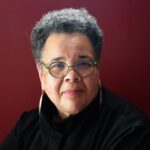Study Leave Grants
Awarded Grants
List of over 1200 grants awarded by the Wabash Center since 1997.
Information about the grants program:
Paul Myhre (myhrep@wabash.edu)
Associate Director, Wabash Center
Also of Interest
Latest Blog Posts
 Are You Okay? - In the family waiting room at Abington Hospital, a nurse delivered news to my father and me. She informed us that my mother’s second surgery in four days had been […]
Are You Okay? - In the family waiting room at Abington Hospital, a nurse delivered news to my father and me. She informed us that my mother’s second surgery in four days had been […] Reading for Orpah: Rethinking the Bible’s Marginal Characters (Part One) - For the past several years, I’ve gotten obsessed with Orpah: Naomi’s other Moabite daughter-in-law in the biblical story of Ruth.[1] Often overshadowed by the story’s eponymous hero, Orpah can be […]
Reading for Orpah: Rethinking the Bible’s Marginal Characters (Part One) - For the past several years, I’ve gotten obsessed with Orpah: Naomi’s other Moabite daughter-in-law in the biblical story of Ruth.[1] Often overshadowed by the story’s eponymous hero, Orpah can be […]
Video: Stories from the Front
As finals week draws near, Dr. Roger Nam of George Fox University, Dr. Eric Barreto of Luther Seminary, and Dr. Kate Blanchard of Alma College discuss how they, as teachers and educators of theology and religion, prepare to give final exams.
Grants - Topic: Study Leave Grants - 1 results
Select an item by clicking its checkboxExploring an Apprentice Model for Ph.D. Students in an Emerging Field: Incarnational Pedagogy for Teaching the Practices of Youth
Proposal abstract :
Research suggests that approaching Ph.D. students as junior colleagues fosters intellectual—and in theological education, spiritual—communities in which teacher/scholars flourish. This project develops an “incarnational pedagogy” for the vocational formation of doctoral students in adolescent discipleship formation (i.e, “youth/young adult ministries”), emphasizing apprenticeship models and situated learning. Incarnational pedagogies seek to embody Christ in communities of practice where students: 1) experience learning in accountable Christian communities, 2) ...
Research suggests that approaching Ph.D. students as junior colleagues fosters intellectual—and in theological education, spiritual—communities in which teacher/scholars flourish. This project develops an “incarnational pedagogy” for the vocational formation of doctoral students in adolescent discipleship formation (i.e, “youth/young adult ministries”), emphasizing apprenticeship models and situated learning. Incarnational pedagogies seek to embody Christ in communities of practice where students: 1) experience learning in accountable Christian communities, 2) ...
Proposal abstract :
Research suggests that approaching Ph.D. students as junior colleagues fosters intellectual—and in theological education, spiritual—communities in which teacher/scholars flourish. This project develops an “incarnational pedagogy” for the vocational formation of doctoral students in adolescent discipleship formation (i.e, “youth/young adult ministries”), emphasizing apprenticeship models and situated learning. Incarnational pedagogies seek to embody Christ in communities of practice where students: 1) experience learning in accountable Christian communities, 2) model informal and situated learning approaches consistent with the practice of youth ministry, and 3) learn to match teaching with what is taught. This project approaches the field of adolescent discipleship formation as a community of practice that incorporates Ph.D. students through legitimate peripheral participation, and challenges dominant models of doctoral education by favoring informal and situated learning strategies alongside practices of spiritual and intellectual discernment to equip future teacher/scholars. I suggest that these practices will improve doctoral theological education, especially in emerging fields.
Learning Abstract :
The project explored the benefits of using "incarnational" pedagogies drawn from adolescent discipleship formation (youth ministry, emerging adult ministry, family ministries, campus ministries, etc.) for preparing doctoral students in these fields. By engaging youth ministry/practical theology doctoral students in cross-institutional "teaching colloquia" and incarnational teaching practices drawn from youth ministry (e.g., mentoring, learning communities, situated and transformative learning opportunities), and by examining research on and practices of informal learning, the project enabled reflection on apprenticeship education for future professors in adolescent discipleship formation. This model is currently being tested at Princeton Theological Seminary for Ph.D. students interested in teaching youth/young adult/family ministries, who submit to a program of intellectual, spiritual, and pedagogical formation during their academic program. The project also yielded several essays on previously unexplored relationships between informal teaching and youth ministry, and an article on "incarnational pedagogy" as a form of apprenticeship for theological education.
Research suggests that approaching Ph.D. students as junior colleagues fosters intellectual—and in theological education, spiritual—communities in which teacher/scholars flourish. This project develops an “incarnational pedagogy” for the vocational formation of doctoral students in adolescent discipleship formation (i.e, “youth/young adult ministries”), emphasizing apprenticeship models and situated learning. Incarnational pedagogies seek to embody Christ in communities of practice where students: 1) experience learning in accountable Christian communities, 2) model informal and situated learning approaches consistent with the practice of youth ministry, and 3) learn to match teaching with what is taught. This project approaches the field of adolescent discipleship formation as a community of practice that incorporates Ph.D. students through legitimate peripheral participation, and challenges dominant models of doctoral education by favoring informal and situated learning strategies alongside practices of spiritual and intellectual discernment to equip future teacher/scholars. I suggest that these practices will improve doctoral theological education, especially in emerging fields.
Learning Abstract :
The project explored the benefits of using "incarnational" pedagogies drawn from adolescent discipleship formation (youth ministry, emerging adult ministry, family ministries, campus ministries, etc.) for preparing doctoral students in these fields. By engaging youth ministry/practical theology doctoral students in cross-institutional "teaching colloquia" and incarnational teaching practices drawn from youth ministry (e.g., mentoring, learning communities, situated and transformative learning opportunities), and by examining research on and practices of informal learning, the project enabled reflection on apprenticeship education for future professors in adolescent discipleship formation. This model is currently being tested at Princeton Theological Seminary for Ph.D. students interested in teaching youth/young adult/family ministries, who submit to a program of intellectual, spiritual, and pedagogical formation during their academic program. The project also yielded several essays on previously unexplored relationships between informal teaching and youth ministry, and an article on "incarnational pedagogy" as a form of apprenticeship for theological education.